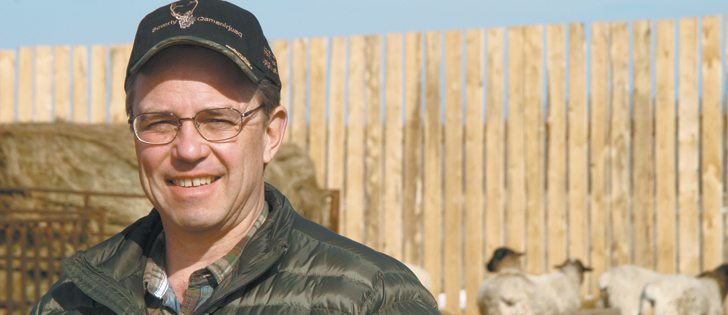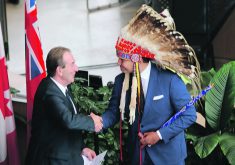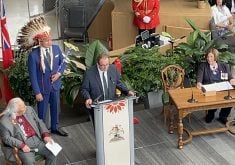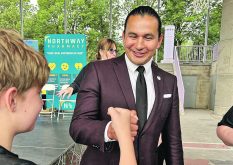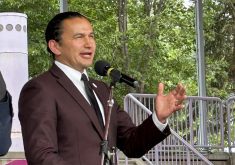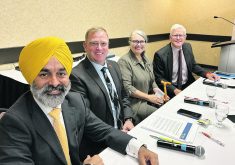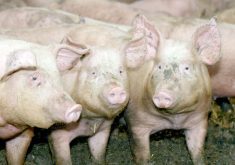This story is part of a series on farmers who are becoming directly involved in the Manitoba election.
POPLARFIELD, Man. — Getting elected often forces a farmer-politician to give up farming.
For Tom Nevakshonoff, getting elected in 1999 meant the opposite.
Once he won as the NDP member for Interlake, he and his wife bought a quarter section and started farming.
“I wanted to experience farming personally so that I could better represent the people within my constituency,” Nevakshonoff said during an interview in his farmhouse a few hundred metres from Poplarfield, a village at “the crossroads of the Interlake.”
Read Also

Europe holds promise for Canadian lentils
Pulse Canada is trying to help boost lentil consumption in Europe, which is already the fourth largest market.
Nevakshonoff may not have a farming background, but he does have a deep Poplarfield background.
Other stories in this series:
His father bought the hotel in town in 1959 when he was one year old and the family moved to the community. His father was also a carpenter, and Nevakshonoff showed a similar proclivity for hard work, ending up working in the Alberta oil patch for 20 years before politics.
Nevakshonoff’s wife, Rozanne, bought Dorper sheep after they acquired the quarter section and developed a sheep breeding operation. It provided lots of physical work for Nevakshonoff when he returned home from Winnipeg, where he was conservation minister in the former government.
“This is my therapy,” he said as he walked through the sheep facilities, checking on the fences and feed.
“She’s the real flock manager. I’m more the guy that builds the fences, gates, barns, garages, drives the tractor.”
Nevakshonoff became conservation and water stewardship minister last year, which gave him the opportunity to deal directly with one of the most contentious subjects in rural Manitoba: water management.
He seems to relish the job and leaps into the opportunity to talk about the regulations and legislation that have been passed and proposed, which he thinks proves the NDP is the best party to watch out for farmers and rural people.
“Over the years, probably half my case work revolves around water issues,” said Nevakshonoff.
The Interlake constituency is unusual in Manitoba, being one of the only mostly-rural areas that has elected NDP candidates in recent elections. Ron Kostyshyn’s northwestern Swan River constituency is the other notable NDP footprint in Manitoba farm country.
Nevakshonoff thinks the NDP message works in his area because of the great range of industries and interests, from farming to indigenous communities to substantial cottage communities on the lakes. He said the government has worked hard to solve the region’s complicated challenges, which is the record on which he’s running.
“You have to balance it all.”
Polls suggest the NDP government is likely to lose on election day, but that doesn’t necessarily mean Nevakshonoff is fighting an uphill battle in his constituency.
It’s an odd duck of a riding, and as an ex-oilfield worker who has eased into farming, he’s an odd duck of a politician, and he hopes that keeps working for him.
Contact ed.white@producer.com


